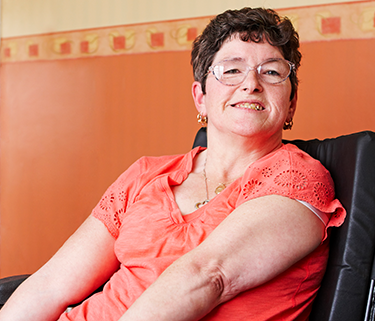Washington, D.C. – A federal judge has denied Kanawha County Schools’ (KCS) motion to dismiss a civil rights class action lawsuit filed by The Arc of West Virginia on behalf of children with disabilities in the county. The lawsuit alleges that the school district, which educates children in the Charleston, West Virginia area, fails to provide effective behavioral supports to students with disabilities and sends them home instead of educating them in violation of federal law. Plaintiffs The Arc of West Virginia and parents of two students with disabilities are represented by Disability Rights of West Virginia, Mountain State Justice, The Arc of the United States, the Bazelon Center for Mental Health Law, and the global law firm Latham & Watkins LLP.
The amended complaint, filed in April, describes how KCS disciplines students with disabilities for “infractions” as minor as touching another student with a plastic fork or refusing to get off the playground slide at the end of recess. Children with disabilities are suspended or sent to a separate special education classroom, instead of receiving individualized supports for behavior, required by federal law, that have been shown to help children to succeed in school. Specifically, the complaint alleges that KCS is:
1) violating the Individuals with Disabilities Education Act (IDEA) by failing to provide children with disabilities with the special education they need to receive a “free appropriate public education” in the least restrictive environment; and
2) violating the Americans with Disabilities Act (ADA), Section 504 of the Rehabilitation Act, and the West Virginia Human Rights Act by failing to educate children with disabilities in the most integrated setting appropriate to their needs, and denying them equal educational opportunity.
KCS moved to dismiss the children’s case, arguing, among other things, that the case could not proceed as a class action because the IDEA requires that every individual student file a “due process” complaint with the West Virginia Department of Education before claims alleging systemic problems can be filed in federal court. Judge Irene Berger of the U.S. District Court for the Southern District of West Virginia disagreed, holding that the students’ allegations were “structural in nature, and the[ir] experiences demonstrate the inadequacy of the relief available through due process complaints. … Requiring hundreds or thousands of impacted putative class members to individually exhaust remedies would serve no purpose.” Judge Berger also noted that “the remedies available [in due process proceedings] would not adequately address the alleged issues, and results would likely be piecemeal and inconsistent. West Virginia has two hearing officers, and the delay inherent in individual exhaustion would render any relief futile for many students.”
“The Arc has long fought for the rights of students with disabilities to receive the supports they need to thrive in their neighborhood schools alongside their peers without disabilities,” said Peter Berns, Chief Executive Officer of The Arc of the United States. “We are pleased that this decision allows West Virginia students with disabilities to continue to pursue this goal and vindicate their rights in court.”
“The Arc of West Virginia is committed to supporting the rights of students with disabilities throughout the state to receive the supports they need to progress academically and socially,” said Liz Ford, Executive Director of The Arc of West Virginia. “Students throughout West Virginia are struggling greatly during this pandemic and it is essential that we continue our advocacy to ensure that they have the behavior supports they need upon returning to school, particularly during this challenging time.”
Data from the West Virginia Department of Education shows that over 1,000 KCS children with disabilities were suspended during the 2018-2019 school year, causing them to fall farther and farther behind academically and socially. This number does not include all of the additional students with disability-related behaviors who were informally sent home from school early and/or told to stay home, without a formal suspension. It also does not include students with disabilities who were expelled from school for their disability-related behavior; those who were separated unnecessarily from mainstream classrooms and moved to segregated classrooms where they receive an inferior education; or those who were placed on “homebound” status where they may receive only a few hours of tutoring each week. The problem is only getting worse: in the 2018-2019 school year, KCS removed nearly 250 more students with disabilities from the classroom than in the prior academic year, despite overall KCS enrollment decreasing during that same period. Read more about the case, which is continuing following last week’s decision, here.
About The Arc
The Arc is the largest national community-based organization advocating for and serving people with intellectual and developmental disabilities (IDD) and their families. In partnership with its network of more than 600 chapters across the country, including The Arc of West Virginia, The Arc works to promote and protect the rights of people with IDD to live, work, and learn in the community free from discrimination. To learn more, visit www.thearc.org and www.thearcofwv.org
About Disability Rights of West Virginia
Disability Rights of West Virginia (DRWV) is the federally mandated protection and advocacy system for people with disabilities in West Virginia. DRWV protects and advocates for the human and legal rights of persons with disabilities. To learn more, visit https://www.drofwv.org/.
About Mountain State Justice
Mountain State Justice is a non-profit legal services firm dedicated to redressing entrenched and emerging systemic social, political, and economic imbalances of power for underserved West Virginians, through legal advocacy and community empowerment offered regardless of ability to pay. To learn more, visit https://mountainstatejustice.org/.
About the Bazelon Center for Mental Health Law
The Bazelon Center for Mental Health Law is a national legal advocacy organization protecting and advancing the rights of people with mental disabilities. The Center promotes laws and policies that enable adults and children with mental disabilities to live independently in their own homes, schools, and communities, and to enjoy the same opportunities that everyone else does. To learn more, visit www.bazelon.org.
About Latham & Watkins LLP
Latham & Watkins LLP is global law firm with more than 2,700 lawyers located in Asia, Europe, the Middle East, and the United States. For more information, please visit its website at www.lw.com.
















